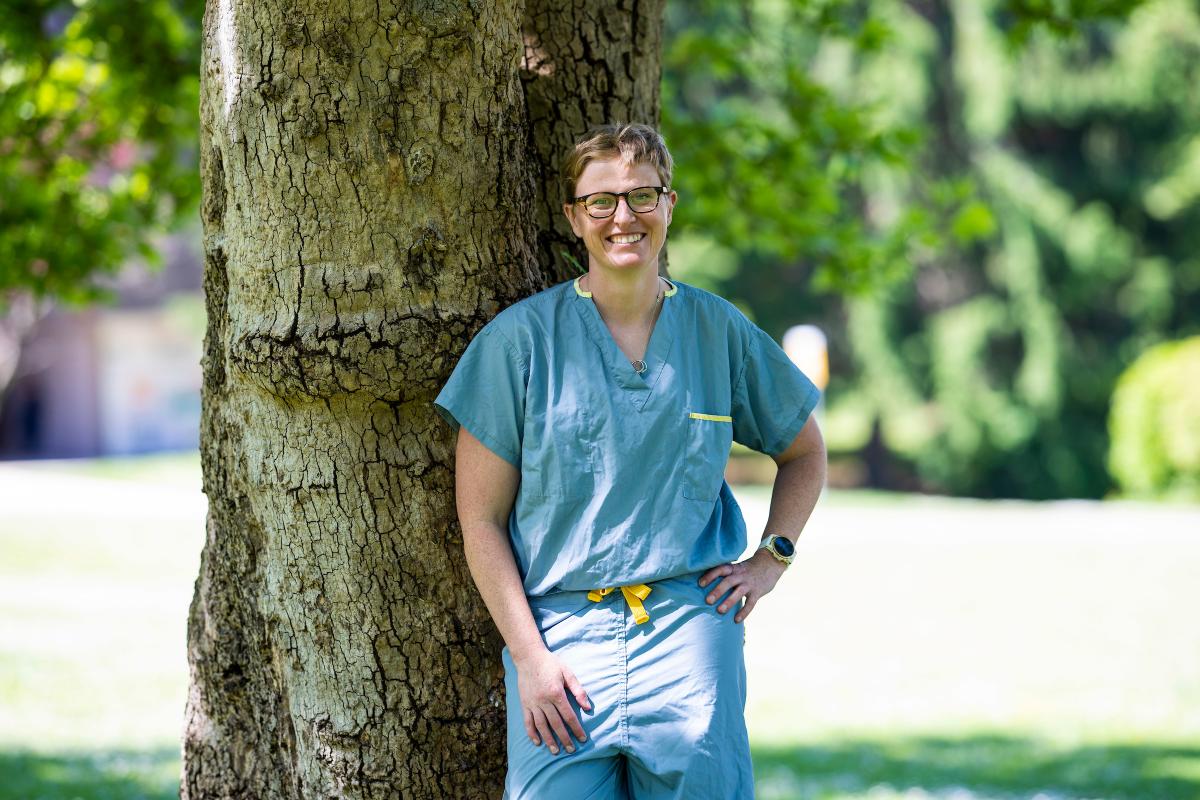BC Children’s hospital and BC Women’s Hospital & Health Center have many available experts and resources to address reproductive infectious diseases (RID), affecting mothers and their infants. However, up until now these services were siloed in their respective hospitals. Mothers with RID delivered at BC Women’s and their infants born with congenital infections received their care at BC Children’s. With the help of the Joint Collaborative Committees (JCC)’s Health System Redesign (HSR) project, both the RID and Pediatric Infectious Disease programs are transitioning into one space – the Oak Tree Clinic (OTC).

Established over 20 years ago, the OTC at BC Women's is a multi-disciplinary clinic that provides complex care to women with HIV and Hepatitis C with a particular focus on pediatrics, as well as pregnancy and adult HIV care. It is a provincial resource for providers seeking information on best practices and evidence-informed care.
The HSR project is supported by the Provincial Health Services Authority and is designed to bring RID and pediatric infectious disease programs together and join the current multi-disciplinary care offered at the OTC – creating a more comprehensive model of care.
Dr Chelsea Elwood, the HSR project lead says, “We had planned to start this project before the pandemic, but when the pandemic happened, it reinforced the need to support patients and providers in this cohesive fashion.”
As part of the HSR project, all health authorities who provided maternity care and pediatric care were asked about their current satisfaction rates with accessing the RID program offered within BC Women’s, the Pediatric Infectious Disease program within BC Children’s, as well as what services could be improved.
Dr Elwood explains, “the feedback we consistently received was that the care is complicated and does better in a multi-disciplinary setting, but that it is really important for women and families to be able to receive care within their communities.”
As a result of these consultations, three streams of access to the Oak Tree clinic were established. The first is through the traditional referral process of a patient through a family doctor or a specialist for an in-person visit, the second is by providing care and collaborative consultations to patients through Telehealth, and the third is by making a provider-to-provider consultation accessible.
The third stream gives the community health care provider timely access to infectious disease experts for chart reviews, and provides guidance with what test to order, how to interpret results, how to counsel patients, and the next steps.

“We are fortunate here in BC to have a really strong group of infectious disease physicians thanks to the long-standing provision of care to HIV mothers and their children, and being a world-leader in multi-disciplinary women’s health,” said Dr Elwood.
The RID program transitioned to OTC in mid-April this year with the next milestone being to move the Pediatric Infectious Disease program to OTC in the Fall. Dr Elwood, in talking about the clinic’s multi-disciplinary model of care, states, “we know that infectious diseases often come with social determinants of health, which are fairly complicated to manage and treat, so the clinic contains social workers, psychiatrists, pharmacy support, multi-disciplinary care providers such as pediatricians, OB/GYN physicians, and adult HIV care, who all specialize in infectious diseases and will help close any gaps in care.” There are also dieticians and outreach workers to deal with access issues, housing stability and other issues that often accompany these kinds of infections.
Currently, the OTC website, which is a provincial resource for HIV care is being upgraded to include information on RID and pediatric infectious diseases. The website will provide easy access to clinical pathways, resources and consultations for all three programs. The website is expected to be upgraded by the end of the year. In the meantime, access to these programs is incorporated into the standard referral process and is available through a call service at BC Women’s.
Dr Elwood’s experience with this project is reflected in her words, “Personally it has been great to collaborate across the province and to meet colleagues to see how we are meeting needs, where the gaps are, and really hearing about the value of our work and what we can do better.”
HSR is an initiative of the Joint Collaborative Committees of Doctors of BC and the BC Government that funds specialists and health authorities to collaborate on system change projects.



